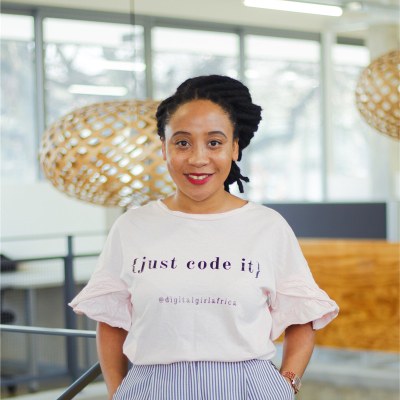In a world where women still fall behind men in relation to workplace equality, by improving the digital skills of women and girls, we could tangibly close the digital gender gap faster.
The worldover, especially in Africa, internet penetration is obviously higher for men than it is for women. According to the World Wide Web Foundation, Africa accounts for the biggest portion of this gap. About 23% less women use the internet in comparison to men and 14% of women own cell phones in comparison to men globally. This means that women are already disadvantaged from fully participating in globalisation.
About 304 million women, which is 64% of Sub-Saharan Africa do not own a mobile device. Socially and culturally constructed gender roles often shape and limit the capacity of women and men to participate on equal terms. Most women often lack the financial resources and the levels of education for internet and computer services. Some regions and demographics obviously have access to modern information and communications while others do not. It’s about time we prioritized digital skills and access to internet for young women and girls in our activism.
As our government embraces the Fourth Industrial Revolution (4IR), which is characterised by new technologies and merging the physical, digital and biological worlds, black South African women and girls risk being left behind. Campaigns like #DataMustFall provide critical starting points to enable our participation in the 4IR. Equipping women with computer and internet skills with the opportunity to reduce poverty in peri-urban and rural communities.
Evidence shows that education is the key to closing the gender digital gap by directing more women towards tech industries. However, studies have also shown that despite there being fewer women in technology than men, many of those who are qualified are still not hired. In South Africa, 22 percent of computer science graduates are women, but only 2.9 percent of them receive jobs in the field of technology. As women we are at risk of suffering in the 4IR as we are less likely to participate in the new technologies that will lead to job creation.The employment gender gap could widen as a result.
 A Male Dominated History On Tech
A Male Dominated History On TechLet’s consider the fact that women invented computer science and not just men.
Modern computing began in the late 1940’s, during World War II. The US military would hire women to solve complex calculations that would improve the accuracy of weapons on the battlefield. Exactly! Much like the movie Hidden Figures? Grace Hopper, a US military Navy Officer and mathematics professor developed a compiler. This is a device which translates english instructions into computer code. Her work literally paved the way for modern programming language.
Throughout the 1950’s and 60’s, women often worked behind the scenes in software engineering while men worked in hardware. Software was perceived as mindless and menial and so computer programming became women’s work.
 Any Electric Ladies Doing The Lord’s Work In Africa?
Any Electric Ladies Doing The Lord’s Work In Africa?Meet 24 year old Ian Mangenga, social entrepreneur and women's rights activists who advocates for women to participate in the Fourth Industrial Revolution, she is the founder of Digital Girl Africa. Her company is a digital hub that transfers digital skills to women and girls and connects them to opportunities in digital technology.
The hub was founded in April 2018 with the aim to increase women's access to opportunities in digital technology, improve their skills and confidence in the field and to create a community of young women in Africa that are using digital technology to shape the future. To date Digital Girl Africa has hosted a digital storytelling workshop for unemployed young women in Ekurhuleni. A 5-day coding bootcamp for teenagers, including a social media masterclass for women entrepreneurs and teenage girls in digital dialogue.
Accenture conducted a study titled “Getting to Equal 2017” , the research study revealed that digitally fluent working class, unemployed and undergraduate women could deliver enormous social and economic benefits for South Africa as digital skills are vital to current and future workforces.
Gale Shabangu, The Inclusion and Diversity lead at Accenture, said “The potential impact is profound. Combining these equalisers could potentially add nearly 100-million women to the global workforce, reduce the pay gap by 355 worldwide and add $3,9-trillion to women’s income by 2030”.
We collectively need to invest more money into digital skill training programmes for women and young girls. Technology is revolutionizing the world by providing tools for entrepreneurship, access to critical health and education. The feminist agenda in South Africa ought to think and plan more strategically around how to harness this potential to create a more equitable and just society. JUST CODE IT.